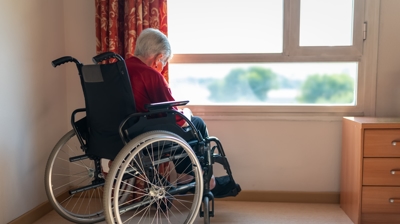If you are involved in a car accident, it’s a great idea to get yourself checked out by a medical professional as soon as possible.
This is not only for your own well-being, but it’s important for seeking compensation after the crash. The easier it is to show that your injuries were caused by the crash, the easier it will be to get compensation for your medical bills and time away from work.
But — life often isn’t that simple. You might have been feeling perfectly fine the day of the crash, and seeing a doctor might have been the furthest thing from your mind. Then, you wake up the next day feeling sore. What should you do?
We’ll break down some tips to help if you start experiencing pain after a car crash.
How long after a car accident can injuries appear?
Car accidents are sudden, violent and stressful. This can cause a jolt of adrenaline, which is the hormone that initiates the body’s “fight-or-flight” response.
Adrenaline can temporarily mask pain by activating the body’s natural pain-relief mechanisms, diverting attention away from injuries during high-stress situations. It’s common for some injuries to become apparent only hours or even days after the accident. This delayed onset is often due to the gradual subsiding of adrenaline and the body’s return to its normal state, which then allows the pain and discomfort of injuries to surface.
Types of delayed injuries
While something like a broken bone or laceration will be immediately apparent, delayed injuries from car accidents usually fall into one of the below categories.
Soft tissue injuries
Soft tissue injuries are common yet often overlooked consequences of car accidents. These injuries affect muscles, ligaments and tendons, leading to symptoms like swelling, pain or stiffness.
What makes them particularly insidious is their delayed onset. You might not notice these symptoms until 24 to 72 hours post-accident. This delay can make diagnosis and treatment challenging, emphasizing the need for vigilance in monitoring your physical state after any collision.
Head and brain injuries
Not all injuries are visible, and this is especially true for concussions or traumatic brain injuries. You may walk away from an accident feeling unscathed, only to develop headaches, dizziness or concentration difficulties hours or days later.
These symptoms can indicate a concussion, a condition that requires immediate medical attention for proper management and recovery.
Whiplash
Whiplash is notoriously associated with rear-end collisions. It’s a neck injury that results from the rapid back-and-forth movement of the head, akin to the cracking of a whip.
Although it might seem minor at first, whiplash symptoms, including neck pain, stiffness and headaches, can take days to fully manifest, often leading to prolonged discomfort if not addressed promptly.
Emotional and psychological injuries
The physical impact of a car accident is often clear, but the emotional and psychological effects can be just as debilitating.
Conditions like Post-Traumatic Stress Disorder (PTSD) and anxiety may not surface immediately but can profoundly affect your mental health and daily life. Recognizing and addressing these injuries is crucial for comprehensive post-accident care.
Should you go to the hospital the next day?
If you begin noticing delayed symptoms after a car accident, it’s important to see a medical professional as soon as possible.
However, when it comes to getting medical help, many people often wonder if it’s best to make an appointment with your primary care provider or go directly to the emergency room.
Deciding whether to visit the hospital the next day involves assessing several factors:
- What are your new symptoms? If you notice new symptoms that would indicate a head injury, like dizziness or headaches that weren’t present immediately after the accident, it’s a strong indicator that you should visit the emergency room. Additionally, new abdominal pain, which could indicate an internal injury or internal bleeding, is a sign that you should visit the hospital as soon as possible.
- How severe is the pain? Mild discomfort might not necessitate a hospital visit (instead, visiting your regular primary care provider). However, intense, worsening or persistent pain is a sign that you need professional evaluation.
- Has your mobility been impacted? Difficulty in moving, walking or performing regular activities could signal serious injuries that require immediate medical attention.
- Are you noticing emotional and cognitive changes? Symptoms like confusion, memory loss or increased anxiety can be indicative of a traumatic brain injury or psychological trauma, necessitating a hospital visit.
- What does a medical professional say? Remember, this is just a page on a website giving general advice. If you’ve already seen a healthcare provider or spoken to one over the phone, follow their recommendations regarding a hospital visit.
If there’s any doubt, you should visit the emergency room. Your health comes first.
How long after a car accident can you claim an injury?
In Missouri, the statute of limitations for personal injury claims is 5 years from the date of the accident. This means you have up to 5 years to file a lawsuit if you’ve been injured in a car accident.
However, it’s advisable to start the process as soon as possible for a stronger case.
That said, while the legal timeframe is 5 years, insurance companies typically require much sooner reporting. Most insurers expect accident and injury reports within days or weeks of the incident. Prompt reporting is essential for a smooth claims process.
Why it is important to report your injuries as soon as possible
Reporting injuries close to the time of the accident helps clearly link the injuries to the incident, which is crucial for both legal and insurance claims.
Quicker reporting also improves the accuracy of your documentation. Immediate medical attention and prompt reporting allow for thorough and accurate documentation of your injuries, supporting your claim. Waiting makes it harder to document the true extent of your injury at the time of your car accident.
Consulting with a personal injury attorney can be beneficial, especially if you discover injuries later or if you’re approaching the deadline. An attorney can offer valuable advice and ensure you navigate the claim process effectively.
Can you report a car accident the next day?
In Missouri, it is permissible to report a car accident the day after it occurs, especially in situations where immediate reporting is not possible due to minor accidents, absence of injuries or other pressing concerns. However, it’s important to understand the specific requirements of Missouri law and your insurance policy regarding accident reporting.
Missouri law requires accidents resulting in injury, death or significant property damage to be reported immediately to the local police or highway patrol. However, for less severe accidents, reporting the next day is generally acceptable. It’s crucial to file a report if there are any injuries or significant vehicle damage, as this is not only a legal requirement but also vital for insurance claims.
When it comes to insurance, most policies require prompt reporting of any accident. In Missouri, this typically means within a few days of the incident. Delaying your report can potentially affect your insurance coverage and complicate the claims process.
Ultimately, reporting an accident, no matter how minor it may seem, provides valuable documentation that could be crucial for future insurance claims or legal disputes.
Get 24/7 legal help for your car accident
After a car accident, especially when dealing with injuries that appear later or navigating the complexities of insurance claims, having experienced legal assistance is invaluable.
The personal injury attorneys at Niemeyer, Grebel and Kruse specialize in car crash cases. They are dedicated to guiding you through the entire process, ensuring that your rights are protected and that you receive the maximum compensation for your injuries, medical expenses and any lost wages.
If you find yourself overwhelmed by the legal and insurance aspects following a car crash, don’t hesitate to reach out for professional help. Contact Niemeyer, Grebel and Kruse at (314) 350-1900 for expert legal assistance.






